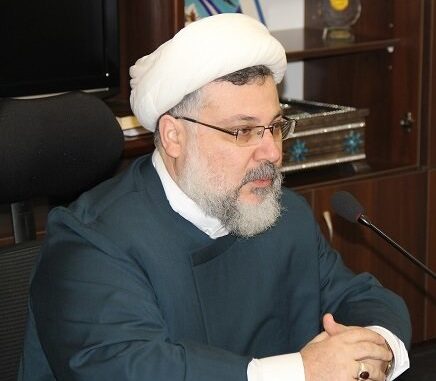
Description:
In a short article published on the Maaref Hekmiya Institute website dedicated to Religious and Philosophical Studies, Lebanese scholar Sheikh Shafik Jaradi explores the causes of the civilizational backwardness and cultural decline of the Muslim world.
Source: MaarefHekmiya.org
Date: March 30, 2020
(Note: Please help us keep producing independent translations by contributing a small monthly amount here )
Transcript:
(Article):
The Reasons behind the Backwardness of Muslims
Keywords: backwardness, decline, Islamic civilization, achievement, customs and traditions, religion, politics.
Many are the approaches that have tackled the issue of the backwardness of Muslims and their cultural decline, after having been the centre of development in previous eras.
Before demonstrating some of the different opinions in this regard, it would be worthwhile to point out that this issue is usually tackled in one of two ways:
1) By addressing the causes of backwardness and decline from a historical perspective. This involves reading the past in order to shed light on the historical dimensions of this civilizational backwardness of Muslim communities and their countries.
2) By addressing the causes – with the aim being in line with the current situation of Islam/Muslims – in which history becomes a lesson that informs the researcher about the civilizational project that he wishes to influence. Compared with this approach, the first offers its proponents nothing but conceptual, emotional, and investigative cases (and examples).
This question of the backwardness of Muslims and the decline of the Islamic civilization arose due to the religious and cultural trauma that befell Muslims as a result of the development of the West (i.e. ‘the non-believers’) and its overtaking of their (civilization) i.e. that of the believers, the faithful. Successive readings emerged that attempted to deal with this question:
The first view: holds that the reason for this backwardness is Muslims sticking to their inherited traditions and customs – their adherence to their ancient heritage – such as the sanctity of the Qur’an and religion, and their failing to approach their heritage with a critical reading that would detach them from the past, and consequently enable them to produce contemporary readings and knowledge (just as the West rejected religion, heritage, and tradition).
This view neglected a significant practical matter, which is that this perspective is subordinated – by its very nature – to the Western intellectual and political context, and that any kind of subordination cannot generate development and advancement. Consequently, regardless of the weakness of the roots of this notion, its subordinating course forms an obstacle before the achievement of any civilizational, cultural or scientific development.
The second view: which is greatly similar to the first, highlights the issue of the relation between religion and politics. Although the proponents of this view believe that religion is good for man, they hold that it should be limited to the individual relationship between man and his God. At best, religion can offer a state of socio-ethical connection between man, God, and religious values. However, religion has nothing to do with the public interest that is related to the construction of this worldly life in the fields of politics, society, and the links between nations and civilization. Rather, it is people that must decide how they build their policies and civilizations, and this requires a complete separation of religious moral values and political expediency in the construction of political and operational systems for people. According to the proponents of this view, it was through this separation of politics and religion that the West was able to build for itself an advanced scientific and civilized future, which is the opposite of what the Islamic world did by incorporating religion and politics.
However, both (approaches above) have neglected two significant issues:
a) The development of Muslims had taken place under this very unity of religion and politics, and the period of backwardness started with the beginning of the separation between religious values and the values of political practice.
b) Superimposing the Western experience on the Islamic experience is inexcusable, as objectivity requires that there be some resemblance between Christianity and Islam in their view towards existence and this worldly life specifically, which we do not have here. Accordingly, the separation of religion and politics cannot be deemed as the solution to the problem of the backwardness of Muslims.
The third view: says that Islam was manifested in its beginning by the Holy Qur’an and the Prophetic tradition, and that this manifestation was known as the period of “the pious predecessors”. Then, later successive periods drove us away from this period of the companions and pious predecessors, making us fall prey to different reasonings and opinions which misled the nation and made it an easy prey for non-believers. It holds that this nation can only be saved by following the path of the pious predecessors.
Although I believe that this (third) view has some truth to it, it commits a clear deviation that was an influential factor in the decline of Muslims. It is a delicate issue that needs careful study, whereby we need to see how the Salafist discourse affected the civilizational development of the Islamic nation.
The final view: believes in the affirmation of the bonds of relation between religion and politics, and that this bond (between religion and politics) is the key to (civilizational) development, and every manifestation of Muslims’ backwardness is mainly due to the separation of religion from politics, an issue that we will tackle later on.
Subscribe to our mailing list!

Leave a Reply